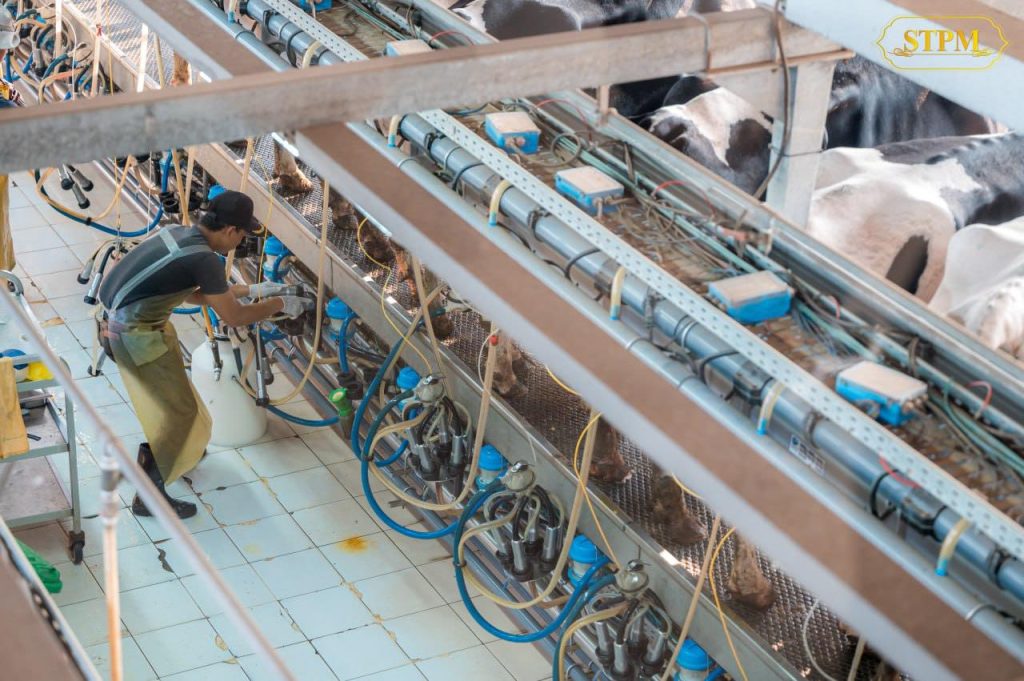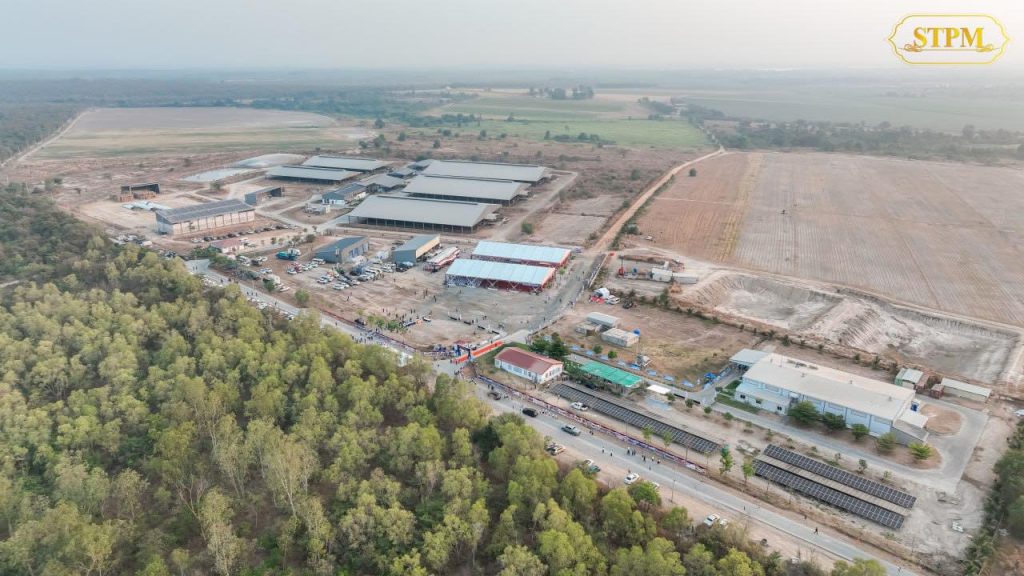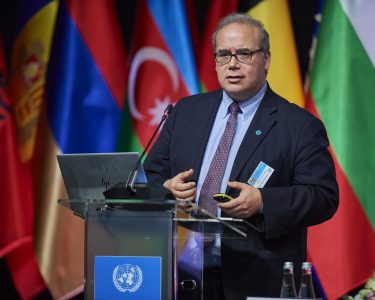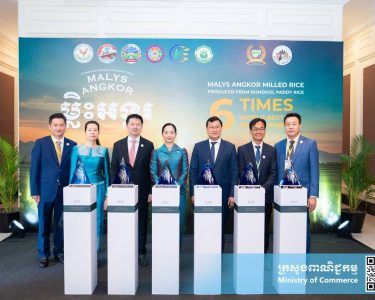Cambodia Investment Review
Kirisu Farm, Cambodia’s first pioneering high-tech dairy farm, celebrated its official inauguration on April 11. The event was presided over by Prime Minister Hun Manet and attended by a range of dignitaries, government officials, educators, and students, highlighting the national significance of this new venture in the agricultural sector.
Operated by Khmer Fresh Milk, Kirisu Farm was established in late 2020 and has quickly positioned itself among the top three dairy suppliers in the nation. Its products, which include fresh milk, yogurt, and butter, are noted for their freshness and quality, a direct result of the farm’s proximity to Phnom Penh—just one hour away—allowing for speedy distribution to one of Cambodia’s largest consumer markets.
The farm is situated on a 300-hectare site leased from the Ministry of Agriculture, Forestry and Fishery, located in Aopheasang village, Kandoeung commune, Bati district, Takeo province. This significant investment by Khmer Fresh Milk Co., Ltd. reflects a broader strategy to enhance local agricultural capabilities and reduce reliance on imported dairy products.
Introducing Modern Farming Technologies & Practices
During the inauguration, Prime Minister Hun Manet commended the initiative taken by Khmer Fresh Milk, recognizing the farm’s role in introducing modern farming technologies and practices to Cambodia. He encouraged the company to continue expanding its operations and urged further private investment in the nation’s agricultural sector to bolster economic development.

The economic implications of dairy farming are significant for Cambodia, a country that imports an estimated 98,000 tons of fresh milk annually, with an expenditure of around $734 million. Kirisu Farm’s operations are expected to decrease these import figures substantially by boosting local production.
Dith Tina, Minister of Agriculture, Forestry and Fishery, emphasized the scale of Kirisu Farm within the national context, noting that it is the largest of four dairy farms in Cambodia. Collectively, these farms manage nearly 1,200 dairy cattle, with Kirisu Farm alone accounting for more than 85% of this total. This capacity places Kirisu Farm at the forefront of the country’s dairy production.
In terms of quality and safety standards, Kirisu Farm has been certified by Good Hygiene Practices and Hazard Analysis Critical Control Points (GHPs/HACCP) since October 2021. The farm has also consistently been recognized for its commitment to environmentally friendly practices, receiving the Cambodian Gold Green Industry Award for three consecutive years.
Penetrating New & More Profitable Markets
Looking to the future, Kirisu Farm intends to substantially increase its investments to enhance production capabilities and penetrate new and more profitable markets. This expansion strategy is aimed at consolidating the farm’s market presence and contributing to the broader economic landscape.

Minister Dith Tina also highlighted the critical role of the private sector in driving national economic growth, stating, “The Ministry is dedicated to supporting initiatives like Kirisu Farm that bolster the agricultural sector, create employment opportunities, raise incomes, and reduce poverty through enhanced local production.”
The launch of Kirisu Farm is a landmark event for Cambodia, signaling a move towards greater self-sufficiency in dairy production and the adoption of advanced agricultural technologies. This development is poised to have a lasting impact on the nation’s agricultural landscape and economic health.





